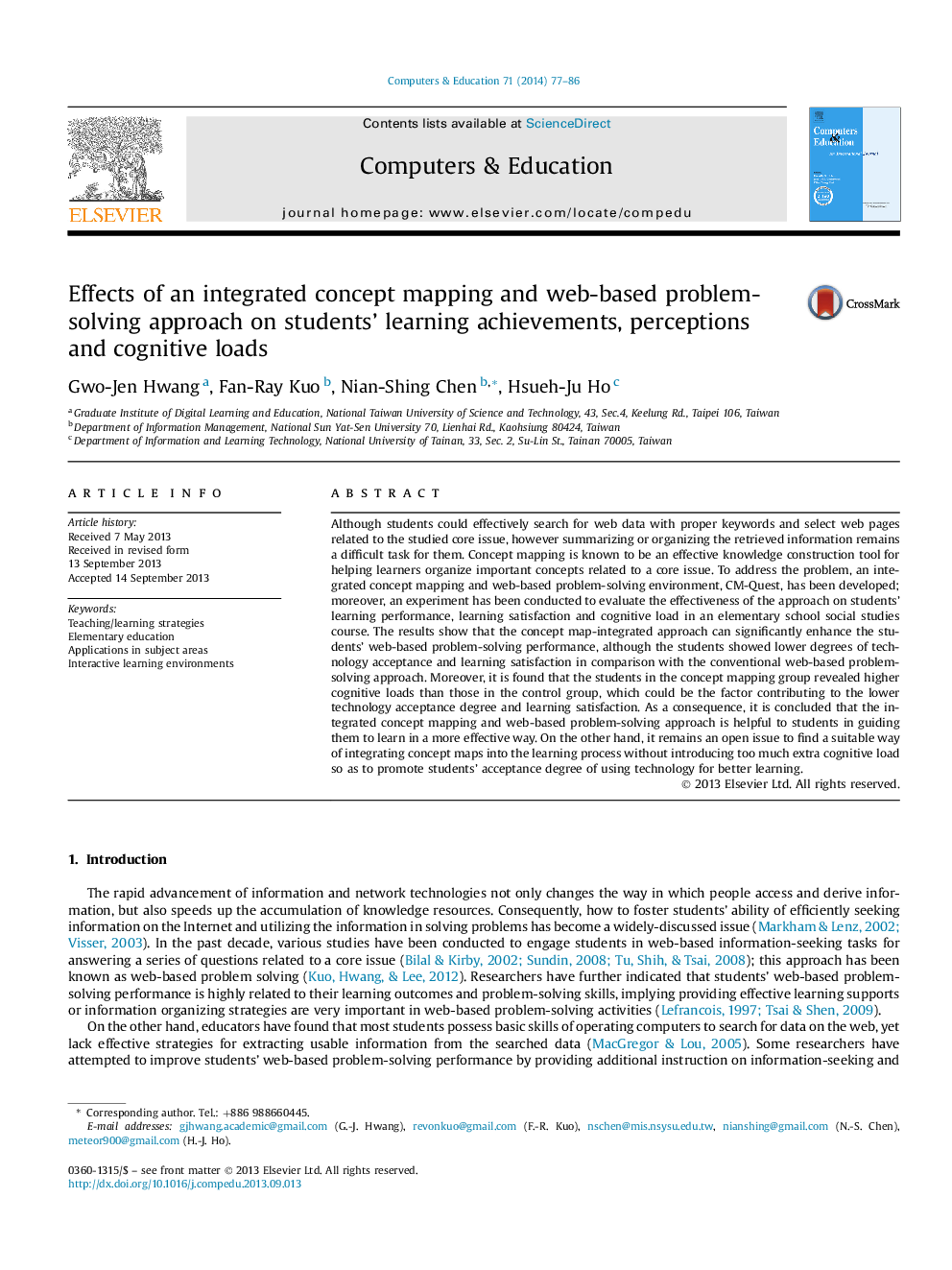| Article ID | Journal | Published Year | Pages | File Type |
|---|---|---|---|---|
| 348438 | Computers & Education | 2014 | 10 Pages |
•A integrated concept mapping and web-based problem-solving approach is proposed.•A learning environment was developed based on the approach.•The approach significantly improved the students' learning performance.•The students showed lower acceptance and learning satisfaction with the approach.•The students showed higher cognitive loads with the approach.
Although students could effectively search for web data with proper keywords and select web pages related to the studied core issue, however summarizing or organizing the retrieved information remains a difficult task for them. Concept mapping is known to be an effective knowledge construction tool for helping learners organize important concepts related to a core issue. To address the problem, an integrated concept mapping and web-based problem-solving environment, CM-Quest, has been developed; moreover, an experiment has been conducted to evaluate the effectiveness of the approach on students' learning performance, learning satisfaction and cognitive load in an elementary school social studies course. The results show that the concept map-integrated approach can significantly enhance the students' web-based problem-solving performance, although the students showed lower degrees of technology acceptance and learning satisfaction in comparison with the conventional web-based problem-solving approach. Moreover, it is found that the students in the concept mapping group revealed higher cognitive loads than those in the control group, which could be the factor contributing to the lower technology acceptance degree and learning satisfaction. As a consequence, it is concluded that the integrated concept mapping and web-based problem-solving approach is helpful to students in guiding them to learn in a more effective way. On the other hand, it remains an open issue to find a suitable way of integrating concept maps into the learning process without introducing too much extra cognitive load so as to promote students' acceptance degree of using technology for better learning.
